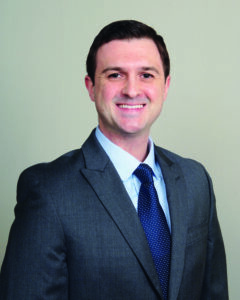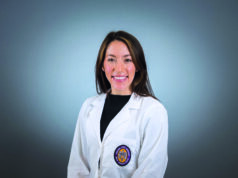
One of the biggest mental shifts I had to make during residency was my view on failure. I literally had to rebrand failure. As a medical student, and like many of my peers, I had been conditioned to automatically feel shame if I didn’t know an answer. Even as an intern, I held the view that if I didn’t know an answer on rounds, in the operating room, or if I made a mistake during my 24-hour call shift overnight, that I was a terrible resident. Fortunately, this view was gradually debunked through perspectives and experiences that highlighted the necessity, importance and inescapable reality of failure.
Often, our views of failure are self-defined, meaning that when we “fail,” it’s because we haven’t met our own standards and expectations for how we think we should have performed. Such a fixed perception of oneself as a “good” or “bad” resident, with zero gray area in between, impedes that of a growth mindset, in which the central driver is “how can I be better than I was before, even in the smallest way possible?” This concept of a growth mindset is not novel. Referred to in the business field as “continuous improvement” or “incremental theory,” growth mindset has been considered a beacon not just at the individual level but has been applied to improvement within large corporations as well. A Harvard Business Review article distinguishes those who are motivated, arguably even obsessed with learning and growing after failure, in contrast to individuals who are paralyzed and shut down after failure.
So can a growth mindset be taught? In particular, can those who respond negatively to failure be taught how to thrive and perhaps even learn to enjoy failure? The education arena is one of the best and most studied examples of this. In fact, a 2019 national study of learning mindsets published in Nature was the largest intervention-based study on the effect of mindset on achievement and found that teaching growth mindset skills could improve grades among lower-achieving students and increase enrollment in advanced mathematics classes.
But can growth mindset be applied to surgical training, especially in vascular surgery? Vascular surgery is a fluid and growing specialty. In a field of rapidly evolving technology and newly published trials that influence how we practice, it’s fundamental to grow with the specialty. As a vascular trainee, one of the aspects I love most is the need to adapt while staying grounded in fundamental skills. With all of this said, however, I acknowledge that mastering the abundance of skillsets in the field amid an ever-growing body of knowledge is intimidating.
So I go back to my initial question: how can growth mindset be incorporated into vascular surgery, to fully embrace all of these developments in which “failure” to some degree is inevitable? As trainees, we have to start seeing the opportunities for growth in every aspect of our training and patient care. For example, during an operative case, we must be goal-directed and hold ourselves accountable for identifying how we can improve, especially seeking out targeted, specific feedback. Effective strategies can include asking attendings for three areas of improvement at the conclusion of a case, or even going into a case knowing precisely what skills you want to develop. How we receive the feedback is equally as important as getting it; we can’t take it personally, which can be challenging, since so much of our identities as surgeons in training is wrapped up in our performance. We can also detach from our performative view of ourselves, instead leaning into our identity as continuous learners.
With our own recognition of and connection to our identity as seekers of continuous improvement, we can become more resilient and persistent in the face of challenge, since we no longer count ourselves out of the game if we don’t meet our own expectations. In this manner, we can give ourselves some grace, such that in the face of real challenge, we can persevere and insist of ourselves that we keep going—that we keep growing.
So perhaps we can reframe training as a bridge to continuous improvement of our patients and ourselves as practitioners, realizing that the specialty we’ve chosen is naturally and excitingly one that is constantly growing. We have the privilege to grow with it.
Kevin Mangum, MD, is a PGY5 vascular surgery resident in his second research year at the University of Michigan.












